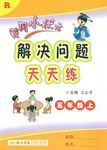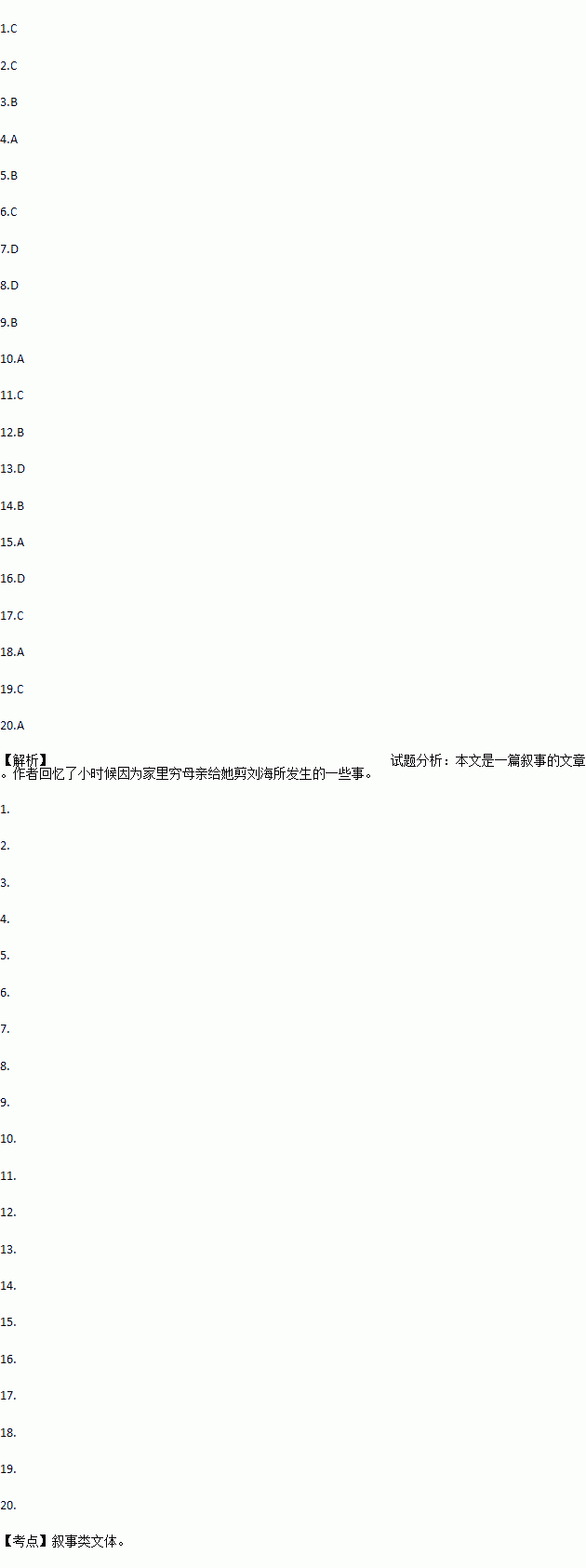题目内容
We didn’t have a lot of money when I was little, so Mum had to ______my fringe(刘海) herself. When we ______ the old photos, she says she did well.
“One side always ended up shorter than the other, so I ______ to even things up(使两边平等),” she says.
When I point out that her idea of evening things up made my head look ______, we both burst out ______. Sometimes my fringe would end up so ______on my forehead that it didn’t need cutting for months.
______ my mother would get it more or less right, but this then______ me the nickname of Bully Beef. At the time, all the children were reading a book. In the______there was a character called Bully Beef. He had a fringe, which looked like his mother had put a bowl on his ______ and then cut round it. As Bully Beef wasn’t a very nice ______and I had long hair, I thought the nickname was rather ______.
When I was a teenager, as a treat, my mother took me to a hair salon, ______ they advised me to______ my fringe. “Her forehead is too big. It will look ______ if her fringe is cut.” The hairdresser’s ____were a disaster for a teenager. But I wasn’t the ______ one to come under attack. “Hmm,” he said, looking at my fringe, “it looks ______ someone has attacked her fringe with a knife and fork.”
My mother ______ her anger and said, “Oh, does it?” Still, it made her think that perhaps it wasn’t such a good idea for her to cut my fringe any more, and so I became a(n) ______ customer at the hairdresser’s.
1.A. clean B. repair C. cut D. decorate
2.A. pick up B. work out C. look through D. write down
out C. look through D. write down
3.A. wished B. tried C. decided D. chose
4.A. strange B. tired C. absent D. far
5.A. crying B. laughing C. quarrelling D. smiling
6.A. long B. wide C. high D. deep
7.A. Rarely B. Perfectly C. Possibly D. Occasionally
8.A. accepted B. owned C. received D. earned
9.A. magazine B. book C. newspaper D. poster
10.A. head B. arm C. face D. leg
11.A. picture B. memory C. character D. partner
12.A. unfamiliar B. unfair C. unlucky D. unsafe
13.A. when B. how C. why D. where
14.A. arrange B. keep C. protect D. expand
15.A. awful B. nice C. easy D. hard
16.A. gestures B. emotions C. attitude D. words
17.A. right B. next C. only D. wrong
18.A. as if B. even though C. so that D. in case
19.A. described B. poured C. controlled D. searched
20.A. regular B. common C. ordinary D. normal
 黄冈小状元解决问题天天练系列答案
黄冈小状元解决问题天天练系列答案 三点一测快乐周计划系列答案
三点一测快乐周计划系列答案
